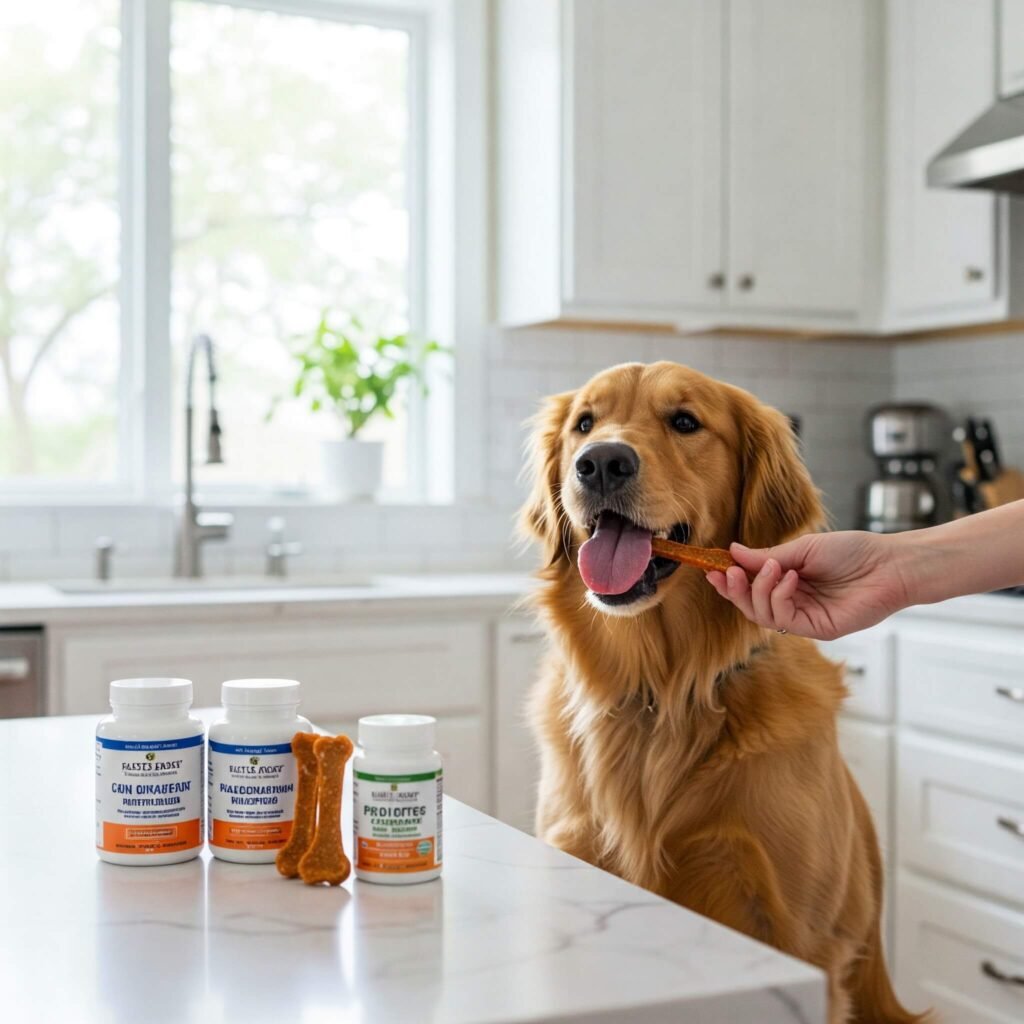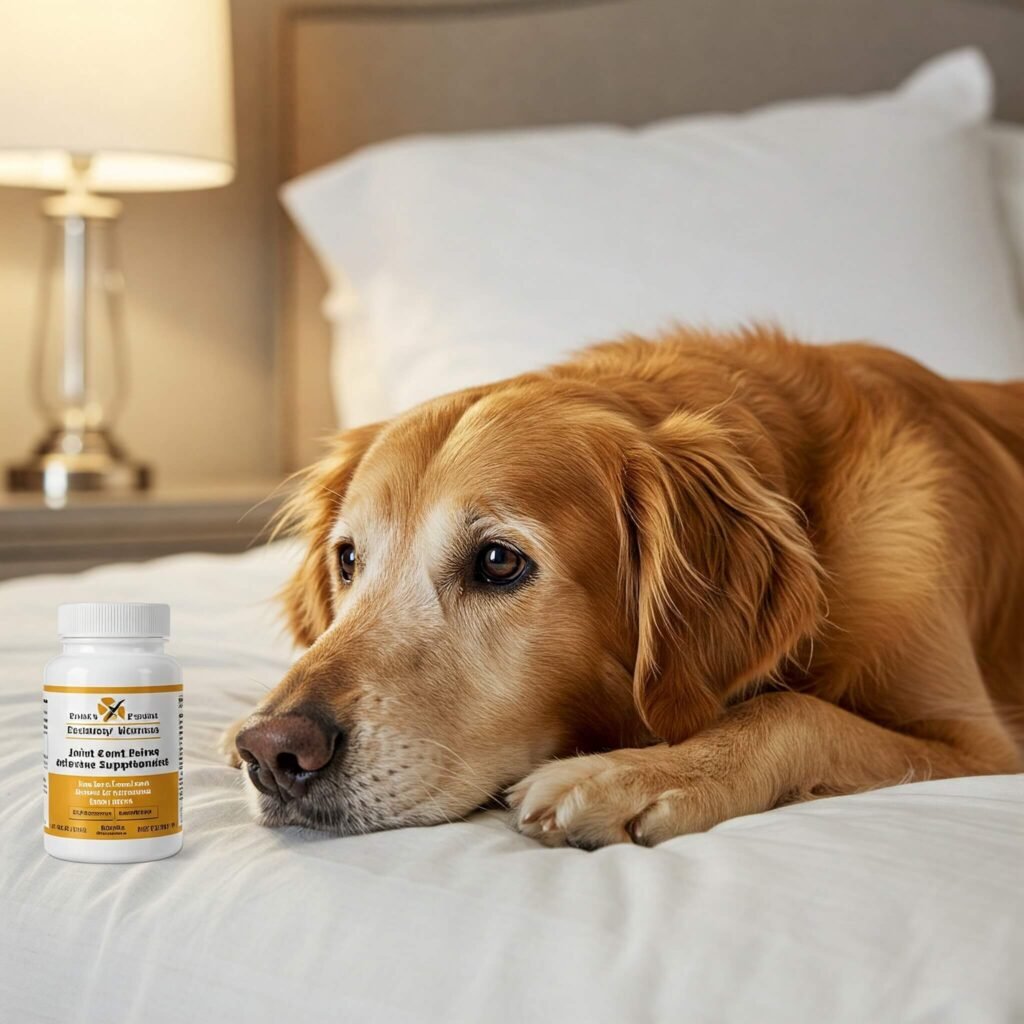Giving your pet supplements can be a game-changer for their health, but knowing when to start is key to maximizing benefits. Supplements can support joint health, improve coat quality, or boost immunity, but timing depends on your pet’s age, lifestyle, and medical needs. This blog explores when to introduce supplements for dogs and cats, offering actionable insights, real-world examples, and expert advice to keep your furry friend thriving.

Why Giving Your Pet Supplements Matters
Supplements address nutritional gaps, support specific health needs, and enhance your pet’s quality of life. According to the American Veterinary Medical Association, 30% of pet owners use supplements to manage conditions like arthritis or skin issues. However, starting at the right time ensures effectiveness and avoids unnecessary use.
Benefits of Giving Your Pet Supplements
- Joint Health: Glucosamine and chondroitin ease arthritis in older pets.
- Coat and Skin: Omega-3 fatty acids reduce itching and promote shine.
- Immunity: Probiotics and vitamins strengthen overall health.
- Energy and Vitality: Multivitamins support active or growing pets.
outbound link: Why Your Pet Might Need Supplements
When Should You Start Giving Your Pet Supplements?
The ideal time to start giving your pet supplements depends on their life stage, health conditions, and diet. Below, we break down guidelines for puppies, kittens, adults, and seniors, with insights for specific needs.
Puppies and Kittens: Early Supplement Needs
Young pets typically get sufficient nutrition from high-quality commercial diets, so supplements are rarely needed unless prescribed. The ASPCA advises against supplements for puppies and kittens under one year unless they have specific deficiencies or medical conditions.
- When to Start:
- Growth issues (e.g., bone development): Calcium or vitamin D, per vet advice.
- Weak immunity: Probiotics for digestive health in stressed or rescued pets.
- Caution: Over-supplementation can harm developing pets, so consult a vet.
Real-World Example: My friend’s rescued puppy, Max, had a sensitive stomach. A vet recommended probiotics to stabilize his digestion, and Max’s energy soared within weeks.

Adult Pets: Giving Supplements for Maintenance
Adult dogs and cats (1-7 years) may benefit from supplements if they face specific challenges, like high activity levels, stress, or minor health issues. The Journal of Veterinary Behavior notes that 25% of active adult dogs show improved mobility with joint supplements.
- When to Start:
- Active breeds (e.g., Border Collies): Joint supplements to prevent wear.
- Skin allergies: Omega-3s to reduce itching and inflammation.
- Stressful environments: Calming supplements with L-theanine or chamomile.
Real-World Example: My cat, Luna, started omega-3 supplements at age three due to flaky skin. Her coat became glossy, and scratching stopped, as confirmed by PetMD recommendations.
Senior Pets: Supplements for Aging Gracefully
Senior pets (7+ years for dogs, 10+ for cats) often need supplements to manage age-related issues like arthritis, cognitive decline, or weakened immunity. A 2023 study by the American Kennel Club found that 40% of senior dogs benefit from joint supplements.
- When to Start:
- Joint stiffness: Glucosamine and chondroitin at the first signs of limping.
- Cognitive decline: Antioxidants or DHA for brain health.
- Digestive issues: Probiotics to support gut health.
Real-World Example: My neighbor’s 10-year-old Lab, Bella, struggled with stairs. After starting glucosamine supplements, her mobility improved noticeably within a month.
outbound link: Senior Pet Care & Supplements

How to Choose the Right Supplements for Your Pet
Giving your pet supplements requires careful selection to ensure safety and effectiveness. Here are five expert tips to guide you:
- Consult Your Vet: Always get professional advice before starting supplements.
- Check Ingredients: Look for high-quality, vet-approved brands with clear labels.
- Follow Dosages: Avoid over-supplementation by sticking to recommended amounts.
- Monitor Effects: Track your pet’s response and report changes to your vet.
- Choose Reputable Brands: Opt for products certified by the National Animal Supplement Council (NASC).
Potential Risks of Giving Your Pet Supplements
While supplements can be beneficial, misuse poses risks. Overdosing on vitamins or using human-grade products can cause toxicity. The ASPCA warns that 10% of pet poisoning cases involve improper supplement use.
Signs of Supplement Overuse
- Vomiting or diarrhea.
- Lethargy or hyperactivity.
- Changes in appetite or weight.
Real-World Example: A friend gave her dog human vitamin D supplements, causing lethargy. A vet visit confirmed mild toxicity, resolved by stopping the supplement.
Final Thoughts: Giving Your Pet Supplements Wisely
Giving your pet supplements at the right time can boost their health and happiness, from supporting puppies’ growth to easing seniors’ aches. By consulting your vet, choosing quality products, and starting supplements based on your pet’s needs, you’ll ensure they thrive. Ready to enhance your pet’s wellness? Talk to your vet about giving your pet supplements today!

